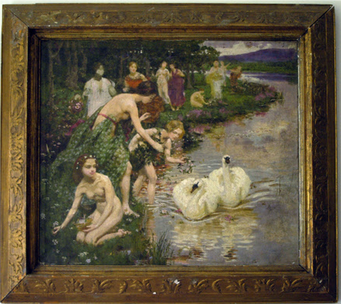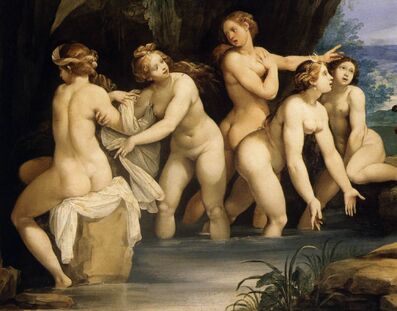Analysis[]
Notice that this stanza has repeated the line “The nymphs are departed” twice. In my opinion, “nymphs” represent something really important for the author to emphasize this line. Nymphs appear in two of Eliot’s references – Prothalamion and Parliament of Bees.
“There, in a meadow, by the river's side,
A flock of nymphs I chanced to espy,
All lovely daughters of the flood thereby,
With goodly greenish locks, all loose untied,
As each had been a bride;
And each one had a little wicker basket,
Made of fine twigs, entrailed curiously,
In which they gathered flowers to fill their flasket,
And with fine fingers cropt full featously
The tender stalks on high.”
Prothalamion - Spenser

Nymphs in Prothalamion
In Prothalamion, a group of nymphs with baskets collecting flowers for the new bribes. In a wedding, flowers represent happiness and a fresh start of a love journey that the husband and wife will be writing together. And the nymphs act as collectors of happiness. However, a pretty thing such as a flower was distorted by Eliot. In part I, line 71-76, the flowers’ role is to cover up the ugly truth that nobody wants to know. However, a “dog” might dig “it” up again which also reveal to us by Eliot in part III. The “ugly truth” is love in the 20th century which no longer holds feelings or affection, but about lust and physical desire. When the nymphs are departed, so is happiness.

Nymphs in The Parliament of Bees
In Parliament of Bees, the nymphs help Diana, Goddess of Hunt, to take a bath in a spring. When Actaeon sees her, the nymphs act as a shield to cover the goddess’s body. When the nymphs are departed, there is no more protection and help remain.